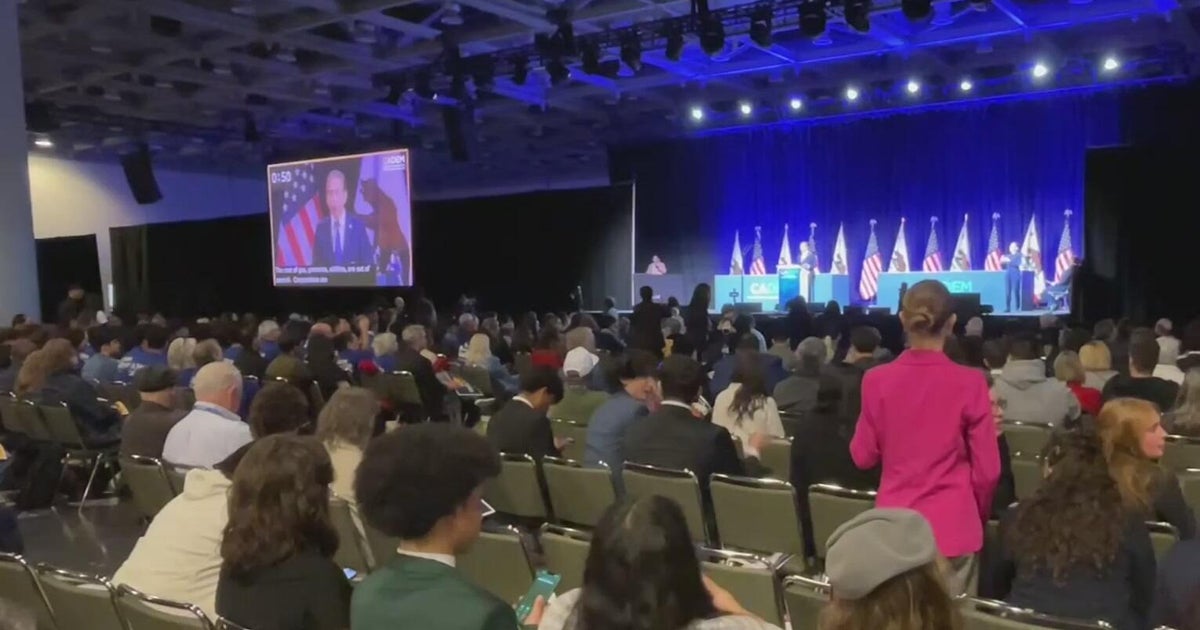Senate fails to move forward with coronavirus stimulus bill
Monday's updates on a coronavirus stimulus package from the U.S. Senate
A procedural vote to move forward with the nearly $2 trillion economic stimulus package failed in the Senate on Sunday, sending lawmakers back to the negotiating table as they rush to support American families and businesses reeling from the coronavirus pandemic.
Democrats blocked Republicans from reaching the 60 votes needed to clear the procedural hurdle, and the absence of several senators self-quarantining due to the coronavirus sidelined several Republicans.
Futures for the S&P 500 fell by 5%, the AP reported, triggering a halt in trading.
Late Sunday night, the Senate adjourned until noon Monday, but there was a chance it would resume proceedings earlier in the day.
The failed vote drew an angry rebuke from Senate Majority Leader Mitch McConnell, who placed the blame squarely on House Speaker Nancy Pelosi.
"We're fiddling here — fiddling with the emotions of the American people, fiddling with the markets, fiddling with our healthcare," he said. "The American people expect us to act tomorrow and I want everybody to fully understand if we aren't able to act tomorrow it will be because of our colleagues on the other side continuing to dither when the country expects us to come together and address this problem."
Soon after, Senate Minority Leader Chuck Schumer said the current proposal is a "corporate bailout with no protections for workers and virtually no oversight" and lacks adequate money for hospitals and health care workers.
"Can we overcome the remaining disagreements in the next 24 hours?" the New York Democrat said. "Yes, we can and we should. The nation demands it."
While there is broad agreement on the need for an immediate response, Democrats want stronger legislative language that prevents companies that receive bailout money from firing workers or using it to buy back shares. They also want restrictions on which businesses can receive bailout money and on executive compensation.
Senators were fine-tuning details on quickly getting cash-payments to American households in coming weeks, checks that could amount to $3,000 for a family of four, Mnuchin said on "Fox News Sunday."
Another significant aspect of the bill is what some describe as "unemployment insurance on steroids," reports CBS News congressional correspondent Nancy Cordes. The idea is to keep paying workers at their previous salary for as long as four months. Unclear is how to get help to so-called gig workers who aren't eligible for unemployment benefits.
Aid for small businesses would come in the form of a $350 billion package of loans and grants, Cordes said, estimated to keep them afloat for six to seven weeks.
Mnuchin described what he called "small business retention loans" to encourage keeping workers. "If you're a small business, you'll get two weeks of cash flow to pay your workers. You need to retain them. You'll also get some overhead. And if you do that, those loans will be forgiven," Mnuchin said.
These initiatives, plus aid for hard-hit industries, including the airlines and hospitals, will cost between $1.5 trillion and $2 trillion.
The economic impact from coronavirus is already being felt. Workers are losing their jobs at an unprecedented pace and that could lead to as many as 2 million people filing for unemployment benefits this week alone, according to Goldman Sachs — that would roughly triple the previous high for weekly jobless claims set in 1982, when the country was in the grips of a deep recession.
Pantheon Macroeconomics forecasts that overall U.S. economic growth will shrink 10% between April and June, threatening recession.



